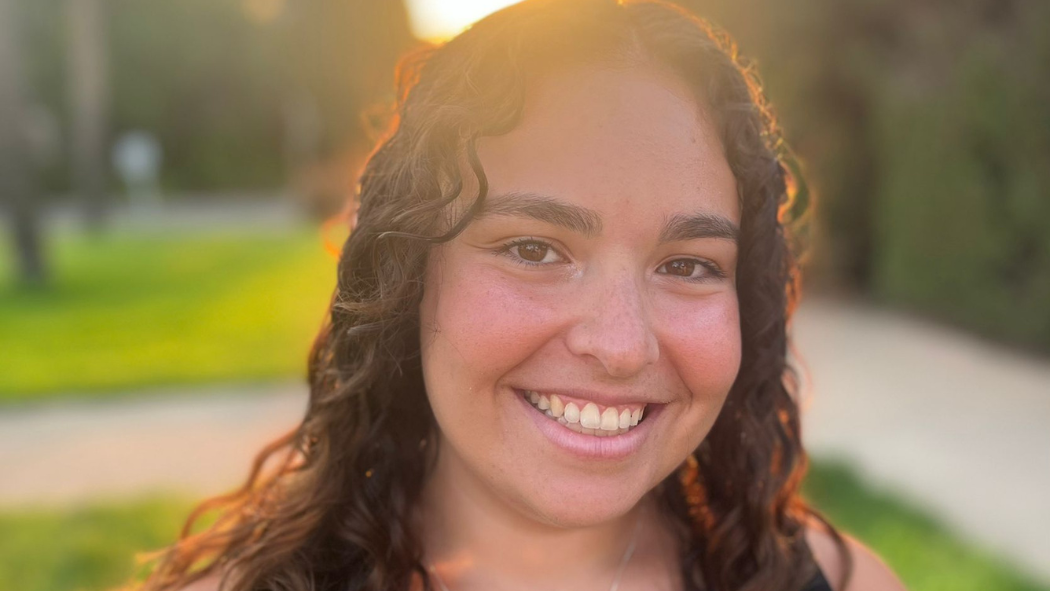Congratulations to the 2024-2025 Breast Cancer Canada Translational Research Unit (BCC-TRU) Traineeship Awardees!

Zachary Freeman is an MSc student in the Department of Epidemiology & Biostatistics, working under the supervision of Dr. Ana Lohmann. He is analyzing the association of body composition and body mass index with cancer-related and obesity-related biomarkers using a liquid biopsy approach in patients recently diagnosed with metastatic breast cancer. Zachary’s research will help inform strategies for improving outcomes for patients with breast cancer and help optimize screening for metastasis.

Noor Rizvi is an MSc student in the Department of Biochemistry, working under the supervision of Dr. Vanessa Dumeaux. Her research focuses on a non-invasive form of breast cancer known as Ductal Carcinoma in Situ (DCIS). Currently, it is not possible to predict which cases of DCIS will become invasive and life-threatening, leading to treatment approaches that may be too aggressive for some women, and not effective enough for others. Noor’s research is identifying markers within the genetics of the cancer and its surrounding tissue which could predict how aggressive the disease is, how it might respond to radiation therapy, and whether it is likely to recur. This research could lead to more personalized treatment plans in the future, minimizing overly aggressive therapy for low-risk breast cancer patients and identifying alternative treatments for those resistant to current methods. Noor is also partially supported by an external Ontario Graduate Scholarship (OGS).

Jeri Spilberg is an MSc student in the Department of Anatomy & Cell Biology, working under the supervision of Dr. Alison Allan. Her research is focused on understanding why breast cancer cells spread or metastasize to specific organs such as the lung, brain, bone and liver. Previous research has shown that hypoxia - when cancer cells aren’t receiving adequate amounts of oxygen - helps enhance their ability to metastasize. Jeri is studying a specific family of proteins called integrins which are involved in aggressive breast cancer cell behaviors such as migration, invasion, survival, and metastasis. She is investigating the differences between the integrins that are expressed during hypoxic conditions that result in metastasis to different organs. This research may provide insight into new biomarkers and/or treatments aimed at preventing or treating breast cancer metastasis in the future.

Lianghong Chen is a PhD student in the Department of Computer Science, working under the supervision of Dr. Pingzhao Hu and Dr. Mike Domaratzki. His project focuses on leveraging Artificial Intelligence (AI) technologies to generate realistic Magnetic Resonance Imaging (MRI) scans of breast cancer patients based on their genomic data. It is expected that this information could be used to predict patient clinical characteristics. The goal of this study is to provide doctors with valuable medical insights directly from synthetic MRI scans, thereby reducing the need for invasive procedures and enhancing outcomes for breast cancer patients.

Nitara Fernando is a PhD student in the department of Medical Biophysics, working under the supervision of Dr. Paula Foster. Her research focuses on the metastasis of breast cancer. When cancer metastasizes, it often spreads first to nearby lymph nodes (called the sentinel lymph nodes), making their detection crucial. Current methods for mapping sentinel lymph nodes involve using radio-tracers and nuclear imaging, which have limitations including radiation exposure and a short half-life. Her project aims to develop a new imaging technique using Magnetic Particle Imaging (MPI) to directly detect sentinel lymph nodes in breast cancer and combat limitations with current methods. Nitara is also partially supported by an external Ontario Graduate Scholarship (OGS).

Anayra Gonçalves is a PhD student in the Department of Anatomy & Cell Biology, working under the supervision of Dr. Armen Parsyan and Dr. Alison Allan. She is using advanced techniques known as spatial omics to create detailed maps of the changes in molecules produced by cancer cells and nearby non-cancer cells within breast cancer tissue. Anayra’s research aims to identify new biomarkers linked to the spread of triple-negative breast cancer (TNBC) to lymph nodes and its resistance to chemotherapy. Ultimately, these biomarkers could lead to more personalized treatment plans and the development of more effective drugs for TNBC patients. Anayra is participating in the BCC-TRU Program as the recipient of a full funding from a Lawson Internal Fund Award (IRF).

Urvi Patel is a PhD student in the Department of Anatomy & Cell Biology, working under the supervision of Dr. Alison Allan. Urvi’s research is investigating mechanisms of metastasis to the lung, which is a common location for metastasis in triple negative breast cancer (TNBC) patients. In particular, she is investigating tiny particles released from breast cancer cells called extracellular vesicles (EVs) which can alter the lung to promote breast cancer metastasis. Urvi’s research will provide a greater understanding about the mechanisms underlying how EVs influence the lung, and whether therapeutic inhibition of EVs can reduce lung metastasis. In the future, such therapeutic strategies could be applied to improve clinical outcomes of patients with breast cancer. Urvi is participating in the TBCRU Program as the recipient of a full external Ontario Graduate Scholarship.

Jared Wootten is a PhD candidate in the Department of Epidemiology & Biostatistics, working under the supervision of Dr. Kelly Anderson. Previous studies have found an association between antipsychotics and an increased risk of developing breast cancer; however, they have used methods which do not account for timing and intensity of exposure, potentially biasing estimates of effect. Jared’s research is using analysis methods that will account for these variations and identify how exposure timing affects breast cancer risk. This will inform antipsychotic treatment decisions by physicians and potentially justify more intensive breast cancer screening among those taking these medications. Jared is also partially supported by an external Ontario Graduate Scholarship (OGS).

George Xie is a PhD student in the Department of Biochemistry, working under the supervision of Dr. Kun Ping Lu and Dr. Xiao Zhen Zhou. His research is focused on developing novel inhibitors for Pin1, a protein which promotes drug resistance and cancer aggressiveness. In triple-negative breast cancer (TNBC), targeting Pin1 and inducing its degradation may render TNBC curable by existing therapies. George aims to develop novel Pin1 inhibitors with improved efficacy and safety, while determining how leveraging Pin1 degradation can overcome drug resistance and treat TNBC by combining Pin1 inhibitors with current therapies.

Dr. Samir Fasih is a Clinical Research Fellow in the Division of Medical Oncology, Department of Oncology. He is working under the supervision of Dr. Ana Lohmann. Dr. Fasih’s research is analyzing the link between body mass index (BMI) and body composition, particularly fat tissue, with therapy response rates in patients who received immunotherapy for breast cancer. In the future, this research could help to better predict which breast cancer patients are most likely to have the best response rates to immunotherapy.



